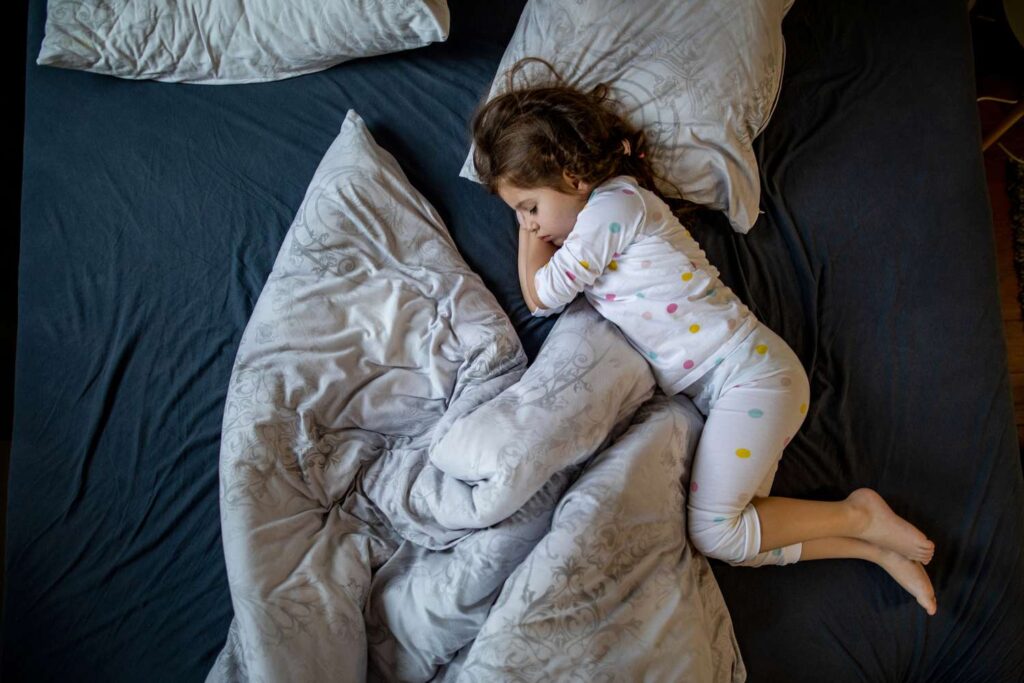What are sleep needs? They are our biological need for sleep(hours, and quality), and the behavior that aligns with our sleep to help us to achieve those goals. Sleep also changes as we age, our environment changes, or circumstances. In terms of a child, needs can vary very quickly as they rapidly grow, develop and learn new skills. Here are the foundational things to remember when accessing your child’s needs and making adjustments to environment and behavior.

1. Consistency
Consistency is one of the most important things within a child’s life. Providing them with structure and predictability helps they feel safe and secure, develop their biological clock, and also gives them cues to understand throughout the day. For example, each night when I take a bath before bed I know it is almost time to sleep. Consistency also matters for good quality sleep. When you go to bed and wake up at the same time the appropriate hormones are released to signal your body for rest and to wake up.
Common mistakes when teaching a child how to sleep is being inconsistent. Trying one method once and it didn’t work, so you move on to the next too soon. While kids are very quick to pick up habits, they will also test to make sure you will follow through.
2. Self-Soothing
All sleep at no matter what age needs self-soothing skills. Knowing how to calm themselves and find their own strategies to fall asleep is essential for all parts of life, and definitely sleep skills. In between sleep cycles we all briefly wake up(even adults), having self-soothing strategies to go right into the next sleep cycle is crucial. As adults we might not even notice but we do different things to soothe ourselves all day long. Whether that be deep breathing, going for a walk, or reading before bed, wearing our favorite pajamas, or sleeping on a certain side of the bed.
A common soothing strategy for adults in the middle of the night is turning over. When we wake between cycles we turn over and go right back to sleep. Children must figure out what helps them. As parents you provide a safe environment and a predictable routine and the child has to find what helps them go to sleep .
3. Sleep Skills
Yes, sleep is a learned skill. If you don’t learn as a child you might have sleep difficulties throughout your whole life. Starting with step number one, learning self soothing and then comes sleep skills. Sleep skills means your child can fall asleep without assistance from you or a prop(rocking, breast, bottle, pacifier). Laying them down awake, and being able to stay asleep through multiple sleep cycles.
The sleep need basics
If you have these foundational skills you can conquer any sleep challenges that change over the years of growth and life changes. Always go back to the basics and ask yourself these questions:
- Am I being consistent?
- Are my partner and I on the same page?
- Does my child feel safe and secure?
- Can they self-soothe?
- Have they learned the skill of independently sleeping?
Do you and your family need sleep support?This can all be pretty overwhelming and we know your tired! We have been there! At FED Coaching we develop programs to meet your child right where they are at now and find the root cause of their difficulties. Reach out to our sleep experts today for a free 30-minute call to discuss your needs. Learn more about children’s sleep and the common sleep disruptors that may be happening in your life.
[…] Stay consistent with your routine at home to provide structure and predictability. When your baby knows what to expect they feel safe and secure. This also supports their body to release the proper hormones that support sleep. Read more about consistency and sleep needs here. […]